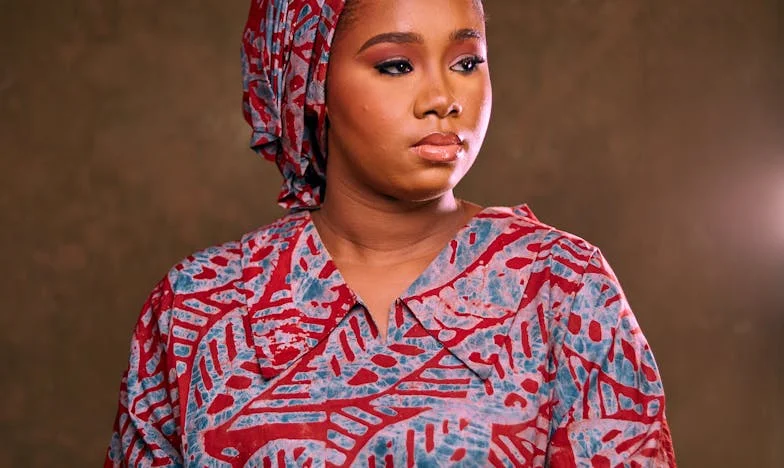I’m Not the Family Maid: The Day I Finally Said Enough
“Gabriella, where’s the laundry? The kids are out of clean socks again!”
The words shot across the kitchen like a bullet, sharp and loaded with expectation. I looked up from the sink, my hands aching from scrubbing pots, my back stiff from hours hunched over chores. My daughter-in-law, Lindsay, stood at the doorway, one hand on her hip, her lips pressed into a thin, impatient line. My heart pounded in my chest, and for a brief moment, I wondered what would happen if I simply walked out the door.
But I didn’t. Like every day for the past four years, I swallowed my frustration and forced a smile. “I’ll get right on it, Lindsay,” I replied, my voice steady even as my insides twisted. In that moment, I hated myself for being so compliant, for being so… invisible.
It hadn’t always been like this. When my son, Michael, married Lindsay, I was overjoyed. She was bright, ambitious, and brought a spark into our sometimes-quiet family. When their twins, Chloe and Mason, were born, I offered to help. I had just retired from my job as a school secretary; I imagined afternoons spent reading stories, baking cookies, being the grandma every child dreams of.
But somewhere along the way, “helping out” became “doing it all.” Michael worked long hours at the hospital, Lindsay ran her tech startup from home, and the twins turned from toddlers into whirlwinds of chaos. I became the one who cooked, cleaned, shuttled the kids to soccer and ballet, even sat up with them during their fevers. At first, I told myself it was temporary. But months turned into years, and my life became a never-ending to-do list.
I tried to talk to Michael. One night, after dinner, I found him in the garage, tinkering with his bike. “Michael, can we talk?” I ventured, my voice uncertain.
He didn’t even look up. “Mom, if this is about Lindsay, can we not? She’s under so much pressure. We’re all just trying to get by. You know how much we appreciate you.”
But did they? The words “thank you” had become as rare as a quiet morning in this house. The appreciation I once felt had faded, replaced by a gnawing sense of obligation.
Lindsay’s demands grew bolder. “Gabriella, can you pick up my dry cleaning? Gabriella, could you make Chloe’s science project? Gabriella, the dishwasher needs fixing.” She never asked. She assigned. And Michael, always gone or tired, never noticed.
My friends noticed. Over coffee at the diner, my old colleague Joyce shook her head. “You can’t let them treat you like this, Gabby. You’re not their maid.”
I laughed it off. “It’s just family.”
But it didn’t feel like family anymore. It felt like servitude.
The breaking point came one Saturday morning. Lindsay had a big investor meeting, Michael was on call, and the twins were shrieking over a spilled bowl of Cheerios. I was cleaning up the mess, my knees wet from the milk, when Lindsay stormed in, her phone glued to her ear. She snapped her fingers at me. “Gabriella, I need you to take the kids to the park—now. I can’t have them here while I’m on this call. And please, try not to let them get dirty again.”
Something inside me cracked. I stood up, milk dripping from my hands, and for the first time, I didn’t smile. “Lindsay, I am not your housekeeper.”
She stared, stunned, her mouth open in disbelief. “Excuse me?”
I felt my legs shaking, but I stood my ground. “I love these kids, and I love this family, but I am tired. I am not the maid. I am not the nanny. I am your mother-in-law. I deserve respect.”
Lindsay sputtered, “I—I thought you wanted to help.”
“I do. But not like this. Not when I’m invisible. Not when I’m being taken for granted.”
Michael walked in, drawn by the sound of raised voices. He looked from me to Lindsay, confusion etched on his face. “Mom, what’s going on?”
“What’s going on is that I feel like a ghost in this house,” I said, my voice trembling. “I need things to change.”
For the next hour, we argued. Lindsay accused me of being ungrateful, Michael tried to play peacemaker, and I cried—really cried—for the first time in months. I told them everything: the exhaustion, the loneliness, the way my days had disappeared beneath everyone else’s needs. I told them about the dreams I’d shelved, the friends I’d stopped seeing, the painting class I’d dropped because there was always something more pressing to do.
At first, they didn’t get it. Lindsay’s face was a mask of shock, Michael’s of guilt. But finally, after the storm of words and tears, they listened. Really listened. For the first time in years, they saw me—not as the background figure making their lives easier, but as a person with limits, with needs of her own.
We agreed on changes. I would set boundaries—no more daily chores, no more last-minute babysitting. I signed up for my painting class again. I started saying “no” without explaining myself. It wasn’t easy. Old habits die hard. Lindsay struggled to adjust; Michael apologized more than once. But slowly, things got better.
The twins missed me at first, but soon we found new ways to connect—movie nights, weekend outings, moments of joy not clouded by resentment. I became a grandmother again, not a caretaker. And I rediscovered parts of myself I thought I’d lost.
Sometimes, I still feel guilty. Sometimes, I worry I’m being selfish. But then I remember that I am more than the roles others assign me.
So I ask you—when was the last time you put yourself first? How long can any of us carry the weight of others before we finally say, “Enough”?
